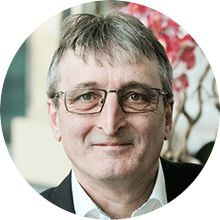“Science is a systematic way of learning from your errors.”
 I’m a proud Yorkshire man who now finds himself happily living in Devon with my wife and two teenage children. Devon suits my life away from work to a T; quiet, good beer and a house which is less than a minute from the water and my boat, the perfect place to relax and unwind away from the turbulence of the commercial world – and it’s warmer than Yorkshire!
I’m a proud Yorkshire man who now finds himself happily living in Devon with my wife and two teenage children. Devon suits my life away from work to a T; quiet, good beer and a house which is less than a minute from the water and my boat, the perfect place to relax and unwind away from the turbulence of the commercial world – and it’s warmer than Yorkshire!
By training and profession I am a Chartered Occupational Psychologist and an Associate Fellow of The British Psychological Society, this has taken me through a number of senior leadership roles in business and consultancy in both the UK and the US. I first came across ON THE MARK as a customer in 2002 when I brought them into Royal Mail to help us successfully redesign the HR Function and, to misquote Victor Kiam, ‘I liked it so much I joined the company’, a decision I have never regretted. For me, ON THE MARK has created the perfect balance between; challenging work with great clients, smart colleagues who know how to both work hard and have fun, and a robust and ever improving collaborative Organisation Design methodology firmly rooted in science.
Writing this, just days after the passing of the great, Jay Galbraith, it somehow feels wrong not to cite his books on Designing Organisations as been those that have influenced me most, but I won’t. My approach to my work in the science of organisation design has been rooted in the work of Karl Popper, particularly Conjectures and Refutations – The growth of scientific knowledge. From him I leant that scientists build tentative theories (conjectures) to explain what they observe. Since no scientific theory can actually be proven, all a scientist can do is trying to refute it. If a theory withstands severe attempts to refute it, the conjecture becomes more credible (but not more probable, and not more true). A successful refutation of a conjecture is a breakthrough: it leads to new insights, and it can eventually lead to better conjectures. In summary, science is a systematic way of learning from your errors.
However, all the training and all the academic work in the world cant’ beat asking and involving those who are closest to the work, they will have the clearest view of the problem and their own theories which may be very different from your own. Those of you that know the story can learn lot from Brian’s mother; “He’s not the Messiah. He’s a very naughty boy!”.
On The Mark’s experience and passion for collaborative business transformation that’s supported by pragmatism, systems thinking, and a belief in people is unparalleled. OTM has been in business for 25 years and is a global leader in organization design consulting.

